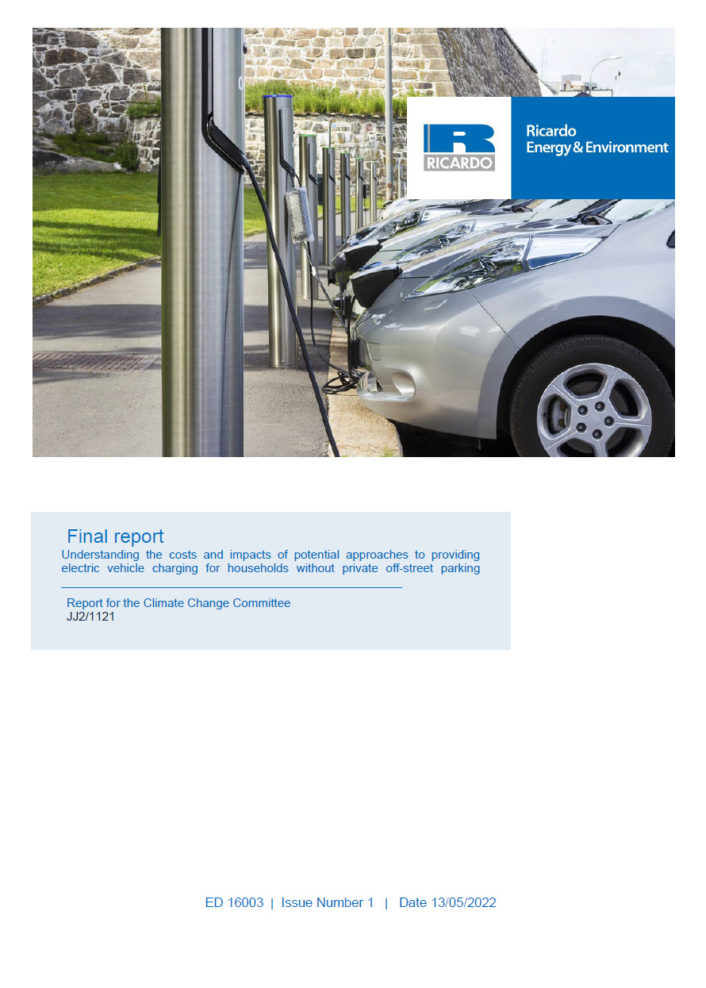1. Outline
The Climate Change Committee (CCC) commissioned Ricardo Energy & Environment to carry out research on understanding the costs and impacts of potential approaches to providing electric vehicle charging for households without private off-street parking. Specifically, the main questions to be answered by this study are:
- Understanding the charging wants and needs of electric vehicle (EV) users without access to private off-street parking.
- Understanding of the cost and wider impacts of charging for households without access to private off-street parking under different business models for different charger types.
- Understand how charging behaviour might be impacted by particular types of business models for different charger types and locations.
- Provide recommendations for the different actors involved in the deployment of EV charging infrastructure for optimal roll-out of public infrastructure.
2. Key messages
- The most attractive charging options are faster chargers that can work immediately, have a high level of reliability, and are readily available for use with short connection times
- Business models need to incorporate a rapid and effective maintenance programme to increase the reliability of chargepoints.
- Lamppost charging offers the cheapest costs to consumers without access to off-street charging, followed by on-street residential.
- There is a business case for higher power on-street residential charging, as these result in lower costs to consumers.
- Rapid charging costs are very sensitive to grid upgrade costs, making locations with sufficient grid capacity more attractive.
To note:
- There is a typo for residential off-street chargers OPEX value – the current value is £500, but it should be £100. This appears in section (A2.1.1), page 54 and table 6-1.
Topics


